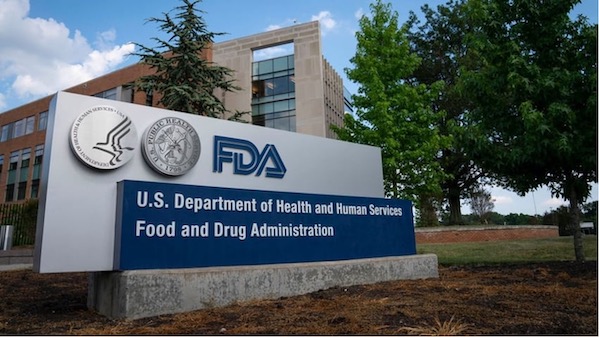Sanofi, AstraZeneca’s RSV antibody for infants easily clears FDA adcomm, likely setting up approval
June 10, 2023
Source: drugdu
 495
495

Seeking to launch their respiratory syncytial virus (RSV) prevention antibody for infants later this year, Sanofi and AstraZeneca have cleared one more regulatory hurdle.Thursday, experts on the FDA's Antimicrobial Drugs Advisory Committee voted 21 to 0 that nirsevimab boasts a favorable benefit-risk profile to protect against RSV-associated lower respiratory disease in infants born during or entering their first RSV season.
On a separate question of whether the drug has a favorable benefit-risk profile in children up to 24 months of age who remain vulnerable through their second RSV season, the vote was 19 to 2 in favor of the drug.
“Most babies hospitalized with RSV are born at term and healthy, which is why interventions specifically designed to protect all infants are likely to result in the greatest impact," Sanofi's executive vice president of vaccines, Thomas Triomphe, said in a Thursday statement. "We are encouraged by the Advisory Committee’s positive vote based on the compelling clinical development program supporting nirsevimab and its breakthrough potential to reduce the magnitude of annual RSV burden.”
Now, the application heads to the FDA for a final say on approval. The agency is expected to make that call in the third quarter of this year, Sanofi has said. The med has already won an approval in Europe and carries the brand name Beyfortus there.
Ahead of the meeting, FDA reviewers laid out the agency's stance of the drug in a briefing document. Summarizing two placebo-controlled trials for the medicine, Trial 03 and Trial 04, the reviewers said nirsevimab's "efficacy was demonstrated in the overall population in both trials."
On the safety side, the FDA said trial investigators found no adverse events of anaphylaxis in any of nirsevimab's clinical trials. Severe or serious skin reactions were "uncommon" in the studies, the FDA said. Fewer than 1% of participants in either the treatment arm or the control arm in the trials experienced drug-related rashes, as determined by trial investigators, the FDA said.
As for deaths, there were 12 among infants who received nirsevimab in three late-stage studies. None were determined by the FDA to be related to the study drug, according to the briefing documents.
Sanofi and AstraZeneca are seeking to win an approval and gain a Centers for Disease Control and Prevention (CDC) recommendation for their antibody over the course of this summer to be able to launch before the RSV season starts in the fall.
Elsewhere in the RSV field, GSK and Pfizer recently won back-to-back FDA approvals for their adult vaccines. Now, the companies are gearing up for a meeting this month of the CDC's Advisory Committee on Immunization Practices, which will review data and make recommendations about the vaccines.
Aside from its adult vaccine, Pfizer is also working on a vaccination approach to protect infants through material immunization. The FDA is set to make a decision on that application in August. Last month, an FDA advisory committee voted in favor of approval.
Reference: https://www.googleadservices.com/pagead/aclk?sa=L&ai=DChcSEwiMhvKVhLX_AhXuG60GHSDqDYAYABAAGgJwdg&ohost=www.google.com.hk&cid=CAASJeRoy0i2GdP51c-e4IxnAsMlJCVr-BbxcpjXgzZHZ6DNRkclk9c&sig=AOD64_0Jmynwvds-2jsJkgzwEQMNq8m_-g&q&adurl&ved=2ahUKEwjD6eiVhLX_AhXRI30KHWfxBQ8Q0Qx6BAgGEAE
By editorRead more on
- The first subject has been dosed in the Phase I clinical trial of Yuandong Bio’s EP-0210 monoclonal antibody injection. February 10, 2026
- Clinical trial of recombinant herpes zoster ZFA01 adjuvant vaccine (CHO cells) approved February 10, 2026
- Heyu Pharmaceuticals’ FGFR4 inhibitor ipagoglottinib has received Fast Track designation from the FDA for the treatment of advanced HCC patients with FGF19 overexpression who have been treated with ICIs and mTKIs. February 10, 2026
- Sanofi’s “Rilzabrutinib” has been recognized as a Breakthrough Therapy in the United States and an Orphan Drug in Japan, and has applied for marketing approval in China. February 10, 2026
- Domestically developed blockbuster ADC approved for new indication February 10, 2026
your submission has already been received.
OK
Subscribe
Please enter a valid Email address!
Submit
The most relevant industry news & insight will be sent to you every two weeks.



